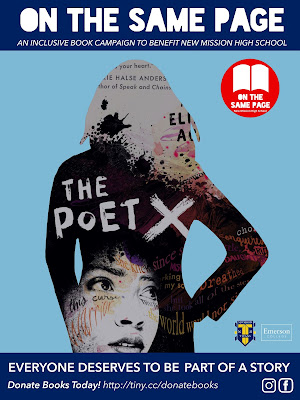
University Nonprofit Courses Use Charity Navigator as Part of the Curriculum
Inside the classroom at Emerson College.
It is Tuesday at noon, and twenty civic-minded undergraduate Emerson College students enrolled in the course Nonprofit Fundraising Campaigns take their seats. In another classroom, twenty-five students enrolled in Introduction to Nonprofit Communication Management are learning which nonprofit organizations they will partner with to provide a social media audit. There is a buzz in both classrooms, as students discuss assignments, campaigns, and nonprofit organizations. This generation of college students are social justice and equity-minded and, as part of Gen Z, “The core values of the generation are reflected in their prioritizing social activism more than previous generations and in the importance they place on working at organizations whose values align with their own.” (Welcome to Gen Z, Deloitte, 2018)
As part of the curriculum, students learn about creating effective communication strategies, methods of evaluating organizations’ finances, development, ethical practices, and impact. Nonprofit Communication Management is an academic minor, which intentionally pairs experiential and lecture-style learning. Students practice what they learn by working directly with nonprofit partners each semester. To date, students in this program have worked with over sixty nonprofit organizations, both local and international.
Charity Navigator continues to be an essential tool used in the curriculum. It allows students to view elements about nonprofits that inform them and the public. Students are taught that decision-making for donors and funders involves identifying whether an organization is financially sound and if their practices are transparent and impactful. Why choose Charity Navigator as a teaching tool? Simply put, it is the gold standard for disseminating evaluative and trusted information about nonprofits. Students utilize the data on Charity Navigator for both courses because often an organization’s website alone does not share its impact or financial data. There is no doubt that, without access to this data from Charity Navigator, this information would be challenging to unearth.

In the course Nonprofit Fundraising Campaigns, students launch a campaign, learn how to write grants, and create crowdfunding campaigns. The grants and crowdfunding campaigns students create are for a nonprofit of their choice and feature a project or program they develop for the nonprofit. As grants include a breadth of information relative to an organization, the data Charity Navigator supplies is key. The fundraising/crowdsourcing campaign created and launched by students is On the Same Page, an inclusive book donation campaign that allows people to purchase books from a wish list that features stories about diverse characters. The books are sent directly to a Boston Public School we partner with. Last year, students ran this for an elementary school and this year, we look forward to launching the campaign for New Mission High School on March 26, 2020.
The future of the nonprofit sector relies on engaging young adults to work in this sector. Teaching courses to prepare the next generation of nonprofit professionals is essential if the sector is to grow and continue its impactful work. If the students in these courses are an indicator as to how the future looks, we have nothing to worry about. They have the compassion, mindfulness, and work ethic to contribute to causes they believe in.
Contributed by Prof. Cathryn Cushner Edelstein, Senior Executive-in-Residence, Communication Studies Department, Director of the Nonprofit Communication Management Program, Emerson College, Boston, MA. To collaborate and share ideas, you can find Professor Edelstein here.


